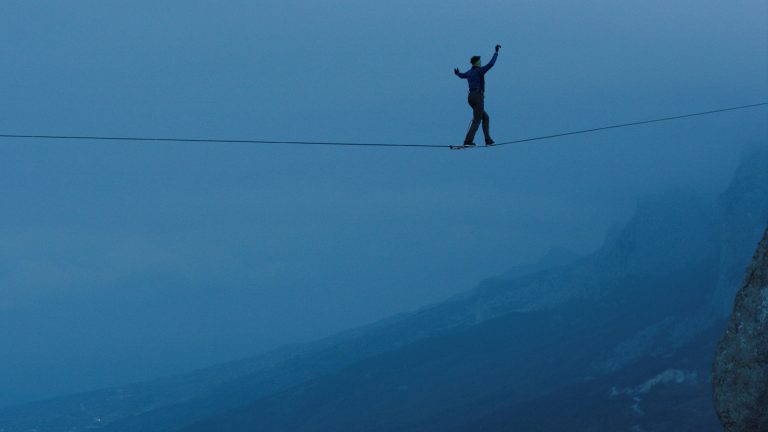Acrophobia is an intense fear of heights that can cause anxiety and panic, even if you’re not too far above the ground. And you might not know what triggered the phobia. A fear of heights can affect a person’s life by being very restrictive, mentally taxing, and difficult to overcome.
How can you prepare to overcome a fear of heights? How can you deal with the symptoms? Can virtual reality help? Like many other phobias, a significant part of successfully dealing with it is your ability and willingness to control the phobia. So, if you want to survive, follow these tips.
Step 1. Start Low
Gradual exposure to being above ground can help overcome this anxiety. The idea is to desensitize yourself to the things that trigger your discomfort or panic. Start low, like walking to the bottom of a hill, and build yourself up to walk a little higher, then a little higher than that. You can also do this in a multi-story building, by gradually moving up to the next level. Be patient with yourself. A 2010 study from the U.S. National Library of Medicine says that acrophobia affects up to 1 in 20 people. So if you fear heights, you are not alone.
If you like being outdoors, you might find your acrophobia restricts you from going to particular places or enjoying some activities. Challenging yourself to do new activities is an excellent way of facing your fears head-on. Still, remember that you can start small and aim high rather than starting with a challenge that’s too intense. Begin in familiar places, and try out new activities with a supportive group, so you feel comfortable enough to take your time and not feel pressured.
Step 2. Watch for the Triggers
It can be tough to overcome the fear you feel when you face situations that trigger your anxiety. If you think that this fear is out of your control, you could get stuck in a vicious cycle of anxiety. Remember that some fear of heights is normal, and it’s programmed in your DNA to keep you out of danger. Try to make a conscious effort to consider situations that trigger your fear. Then rationalize them, and tell yourself that there is no need to be afraid and that you are definitely safe. This reassurance can help you work towards overcoming your fear of heights.
Step 3. Prepare Yourself
If you know you’ll be in a scary situation, like climbing a ladder, crossing a bridge, or going up a skyscraper, it helps to prepare yourself. Know what to expect, and analyze the problem. Find out what safety measures there are to keep you out of danger, and evaluate them, as this process can help you create a strategy to stay calm. This process also helps to normalize the concept of being at a higher height than usual, allowing you to become more accepting and confident in that situation.
Step 4. Control the Symptoms
You can also think of ways to control the common symptoms of acrophobia. As with anxiety and panic attacks, minimizing these symptoms will likely help you. Rapid heartbeat, short breaths, and excessive sweating are all common symptoms when you fear heights. Practicing relaxation techniques can help minimize these symptoms and get them under control. Deep breathing exercises are a straightforward practice that can help you feel more relaxed.
Step 5. Exposure Therapy
Thanks to new techniques, many people have had positive results by controlling and even overcoming their fear of heights. A team led by Dr. Tara Donker studied a treatment that used a smartphone app and cardboard virtual reality goggles, called virtual reality exposure therapy. The therapy was inexpensive and entirely controlled by the patients.
In this therapy, you’d use virtual reality to slowly expose yourself to conditions that trigger your fear of heights. As you become comfortable with those situations, you’d choose other scenarios that are a little more uncomfortable. Repeating this process at their own pace helped the acrophobics face their fear of heights, and greatly reduced their symptoms.
While it’s normal to be more afraid of heights as you get older, you wouldn’t want to go through life worrying about falling and hurting yourself. After all, the last thing you need is to develop another phobia, like a fear of falling. Or even worse, falling out of a plane without a parachute.
Sources
- “Acrophobia, Or Fear Of Heights: Symptoms, Causes, And Treatment”. 2021. Healthline.
- “Who, what, why: Is everyone born with a fear of heights?”. 2014. BBC News.
- “Deconstructing acrophobia: physiological and psychological precursors to developing a fear of heights”. Coelho, Carlos M., and Guy Wallis. 2010. Depression And Anxiety 27 (9): 864-870. doi:10.1002/da.20698.
- “Health Check: Why Are Some People Afraid Of Heights?”. 2017. The Conversation.
- “Acrophobia: A Personal Story – Indefinite Adventure”. 2021. Indefinite Adventure.
- “Nik Wallenda successfully walks over an active volcano on a tightrope”. Alexandra Mae Jones. 2020. Ctvnews.
- “Exposure Therapy and the Fine Art of Scaring the Shit Out of Yourself On Purpose”. 2017. Esquire.


















